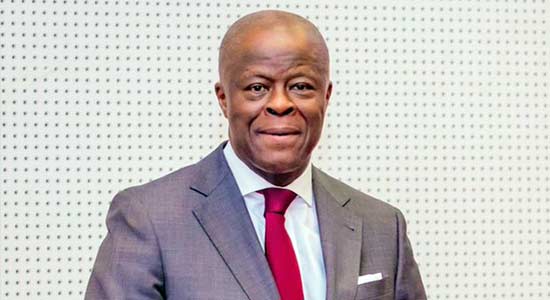
Minister of Finance and Coordinating Minister of the Economy, Wale Edun
President Bola Tinubu swore in 45 ministers on 21 August — more than two months after his inauguration — as he settles into his role as head of government. Tinubu had submitted the names of 48 ministers but the confirmation of three of them was placed on hold pending a further security review. At least one of the rejected candidates, Nasir el-Rufai, has reportedly decided to reject the offer of a cabinet post (Nigeria Politics & Security – 14.08.23). It is unclear whether the other two continue to be interested in a portfolio if they pass the security vetting. The president may choose to nominate an additional three ministers in order to appoint 48 ministers as he had originally intended, or maintain the current numbers which would still make it the largest cabinet since Nigeria’s 1999 return to multi-party democracy.
Tinubu has also restructured the portfolios to better reflect his priorities and appointed two ‘super ministers.’ The first appointee, Wale Edun, was designated Finance Minister and Coordinating Minister of the Economy. The last person to hold this position was Ngozi Okonjo-Iweala under former President Goodluck Jonathan (2010-2011). The role has been characterised as that of a mini-premier who ensures that all their cabinet colleagues implement their responsibilities in accordance with the president’s overall vision.
On paper, Edun is the most influential minister in Tinubu’s administration but, in practise, if he becomes too dominant it will lead to difficult conflicts with other ministers. When Okonjo-Iweala held the position, her colleagues did not include numerous former governors, and she was already a senior World Bank official. She had also played a similar role under former president Olusegun Obasanjo (1999-2007), when she was both finance minister and head of the economic management team. Her track-record commanded the respect of her ministerial colleagues who were primarily technocrats in their respective disciplines and political novices before becoming ministers.
The new cabinet is very different because it has nine former governors, with most having just completed their second terms and wholly accustomed to exercising executive powers for eight years. They are unlikely to appreciate Edun — whose highest previous political position was that of a Commissioner of Finance — supervising or instructing them. Unless Edun receives similar support from Tinubu that Okonjo-Iweala did when she served under Obasanjo and Jonathan, it could lead to conflict. He is likely to receive the president’s support because he has been Tinubu’s ally since the latter was Lagos State’s governor and Edun served as his finance commissioner for the entire eight years, which is a testament to Tinubu’s trust in him.
Further analysis of the cabinet is available in Nigeria Politics & Security – 21.08.23 and also in the August issue of Nigeria Focus which will be out later this week.
Nigeria’s New Cabinet – appointed 21.08.23
| Minister of Finance and Coordinating Minister of the Economy, Wale Edun |
| Minister of Health and Coordinating Minister of Social Welfare, Ali Pate |
| Minister of Agriculture and Food Security, Abubakar Kyar |
| Minister of Art, Culture and the Creative Economy, Hannatu Musawa |
| Minister of Aviation and Aerospace Development, Festus Keyamo |
| Minister of Budget and Economic Planning, Atiku Bagudu |
| Minister of Communications, Innovation and Digital Economy, Bosun Tijani |
| Minister of Defence, Mohammed Badaru |
| Minister of Education, Tahir Maman |
| Minister of Environment (allocated to Kaduna State) |
| Minister of Federal Capital Territory, Nyesom Wike |
| Minister of Foreign Affairs, Yusuf M. Tuggar |
| Minister of Housing and Urban Development, Ahmed M. Dangiwa |
| Minister of Humanitarian Affairs and Poverty Alleviation, Betta Edu |
| Minister of Industry, Trade and Investment, Doris Nkiruka Uzoka-Anite |
| Minister of Information and National Orientation, Muhammed Idris |
| Minister of Innovation Science and Technology, Uche Nnaji |
| Minister of Interior, Olubunmi Tunji-Ojo |
| Minister of Justice and Attorney General of the Federation (AGF), Lateef Fagbemi |
| Minister of Labour and Employment, Simon B. Lalong |
| Minister of Marine and Blue Economy, Adegboyega Oyetola |
| Minister of Niger Delta Affairs, Abubakar Momoh |
| Minister of Police Affairs, Ibrahim Geidam |
| Minister of Power, Adedayo Adelabu |
| Minister of Solid Minerals Development, Dele Alake |
| Minister of Special Duties and Inter-Governmental Affairs, Zephaniah Jisalo |
| Minister of Sports Development, John Enoh |
| Minister of Steel Development, Shuaibu A. Audu |
| Minister of Tourism, Lola Ade-John |
| Minister of Transportation, Sa’Idu A. Alkali |
| Minister of Water Resources and Sanitation, Joseph Utsev |
| Minister of Women Affairs, Uju Kennedy |
| Minister of Works, David Umahi |
| Minister of State (Gas), Petroleum Resources, Ekperikpe Ekpo |
| Minister of State (Oil), Petroleum Resources, Heineken Lokpobiri |
| Minister of State Defence, Bello Matawalle |
| Minister of State Education, Yusuf T. Sunumu |
| Minister of State, Agriculture and Food Security, Aliyu Sabi Abdullahi |
| Minister of State, Environment and Ecological Management, Ishak Salaco |
| Minister of State, Federal Capital Territory, Mairiga Mahmud |
| Minister of State, Health and Social Welfare, Tunji Alausa |
| Minister of State, Housing and Urban Development, Abdullah T. Gwarzo |
| Minister of State, Labour and Employment, Nkiruka Onyejeocha |
| Minister of State, Police Affairs, Imaan Sulaiman-Ibrahim |
| Minister of State, Water Resources and Sanitation, Bello M. Goronyo |



